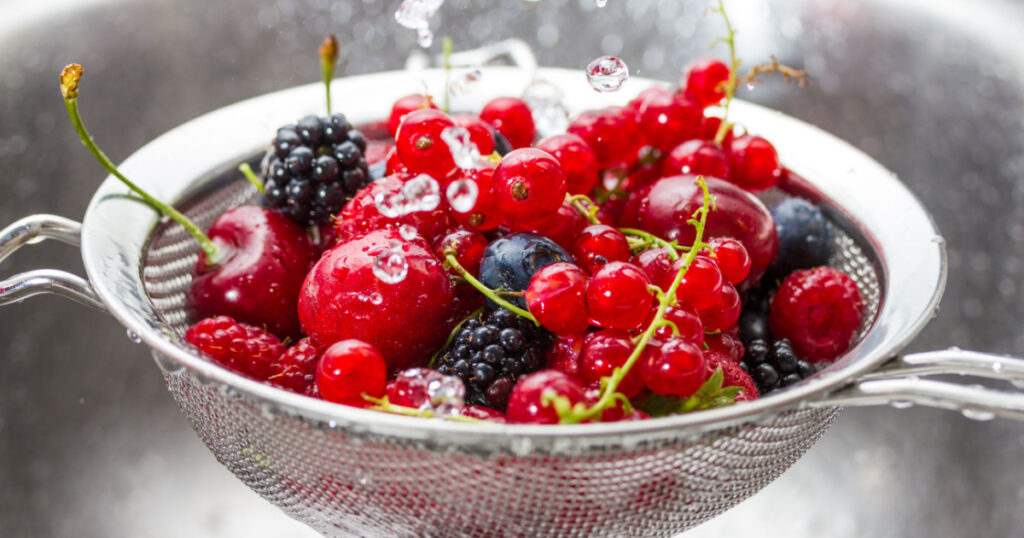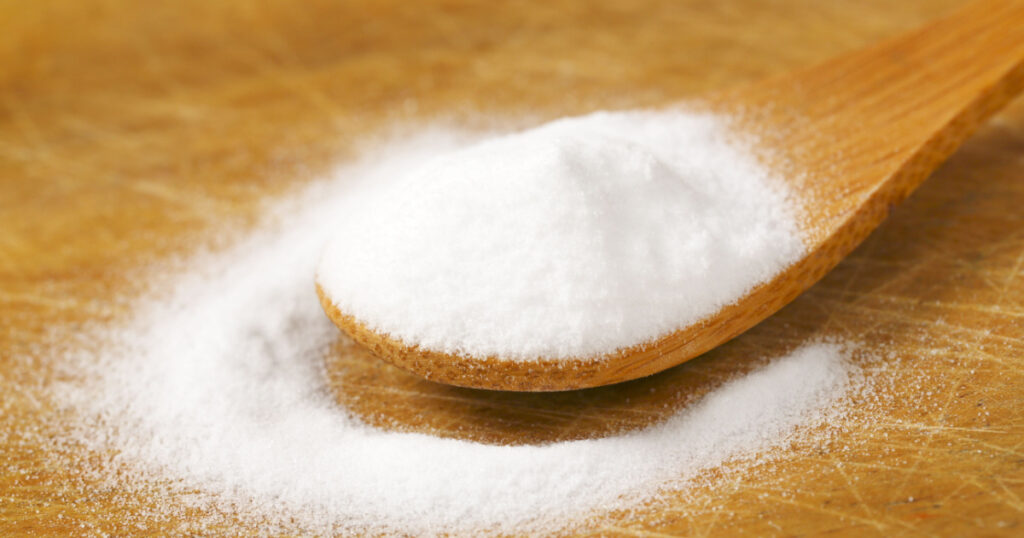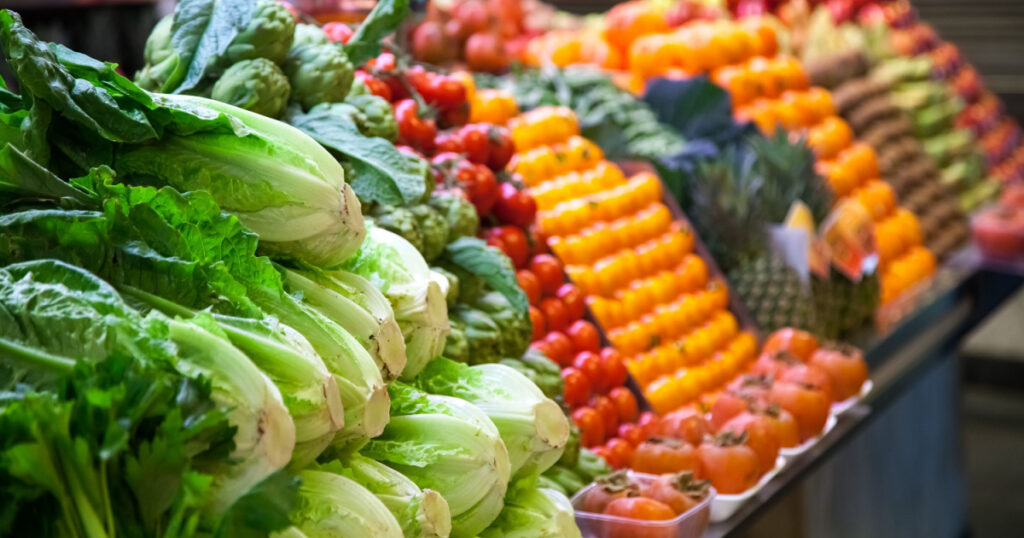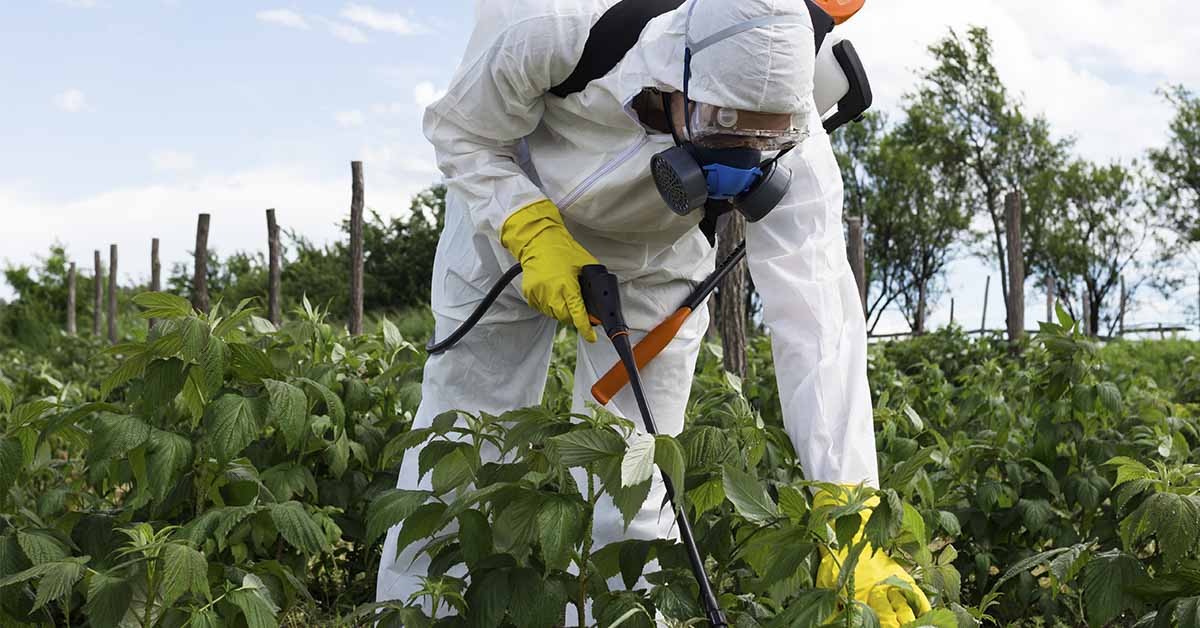Every year, millions of people around the world consume fruits and vegetables. While these fresh produce items are packed with essential vitamins and minerals, they can also be laced with harmful pesticides. Pesticides are chemicals that are commonly used to protect crops from pests and diseases, but residues can still remain on them. Thankfully, there are cheap, effective ways to remove pesticides from your produce.
Scientists Test Three Solutions for Cleaning Pesticides Off of Produce: The Winner is Clear and Surprisingly Cheap

In 2017, a study was conducted to test the effectiveness of baking soda in removing pesticides from fruits and vegetables. The results showed that baking soda was highly effective in reducing pesticide residues. (1)
The study, published in the Journal of Agricultural and Food Chemistry, looked at how effective a solution of water and sodium bicarbonate, aka baking soda, was at removing pesticides. The researchers soaked conventionally grown apples in a solution of one tablespoon of baking soda per 1.5 liters of water. They soaked the apples for 8 minutes and then 12-15 minutes, after which they tested how much pesticide residue was left on the fruit.
The results were compelling. After just an eight-minute soak, the apples showed a significant reduction in the amount of pesticides left over on their skin. What was even more impressive was the additional four to seven minutes of soaking time—these extra minutes left the apples essentially pesticide-free. However, it is important to note that the effectiveness is not as strong for pesticides that have penetrated the apple’s peel. That being said, this will still significantly reduce the pesticide load of the food.
Read More: 5 Tea Brands That Contained High Levels of Pesticides (+ Alternatives)
How Does It Work?

Baking soda, also known as sodium bicarbonate, is a chemical compound that has gained popularity over the years for its various household uses. It is non-toxic, environmentally friendly, and has the potential to effectively remove pesticide residues from other fruits and vegetables.
So, how does baking soda achieve this remarkable feat? The alkaline nature of baking soda facilitates the breakdown of the pesticides, enabling their removal from the produce. In addition, baking soda’s abrasive texture helps physically scrub away any remaining residues, leaving the produce cleaner and safer to consume.
Further Implications

The study’s findings have far-reaching implications for both consumers and the agricultural industry. Consumers now have access to a safe, affordable, and readily available solution for removing harmful chemicals from their fresh produce. For individuals unable to afford or gain access to organic produce, utilizing baking soda can be a cost-effective way to reduce pesticide exposure.
Moreover, the agricultural industry can leverage this knowledge to develop more sustainable and eco-friendly methods of pest control. By reducing the reliance on harsh chemical pesticides, farmers can work towards creating a healthier and safer food supply for consumers.
Read More: 8 Gardening Hacks That Will Help Flowers, Veggies, And Fruit Flourish
Other Methods

While the 2017 study may have shed light on the effectiveness of baking soda in removing pesticides, it is important to note that other methods also exist. One commonly recommended method is to soak produce in a vinegar solution. Vinegar, specifically apple cider vinegar, can help break down pesticides due to its acidic nature. However, vinegar may not be as effective as baking soda, especially against certain pesticide residues. (2)
It is crucial to understand that no single method can completely eliminate all pesticide residues from produce. However, by utilizing a combination of different cleaning methods, consumers can significantly reduce their exposure to these harmful chemicals.
Some additional methods that can be employed include manual scrubbing with a soft brush or cloth, peeling fruits and vegetables when appropriate, and purchasing produce from reputable sources that practice responsible pesticide use.
The Bottom Line

The study conducted in 2017 undoubtedly brought baking soda to the forefront as an effective and affordable solution for removing pesticide residues from produce. Its alkaline nature and abrasive texture make it an excellent contender in the quest for cleaner, safer fruits, and vegetables. However, it is important for consumers to explore a range of cleaning methods and adopt good hygiene practices to minimize pesticide exposure. By understanding the science behind pesticide removal and making informed choices, we can all work towards a healthier and more sustainable future.
Read More: Health Benefits of One of The Rarest and Most Exotic Fruit
Sources
- “Effectiveness of Commercial and Homemade Washing Agents in Removing Pesticide Residues on and in Apples.” ACS. Tianxi Yang, et al. October 25, 2017.
- “How to Clean Fruits and Vegetables to Rid Them of Pesticides.” Taste of Home. Amanda Tarlton and Lisa Kaminski. October 6, 2023.

